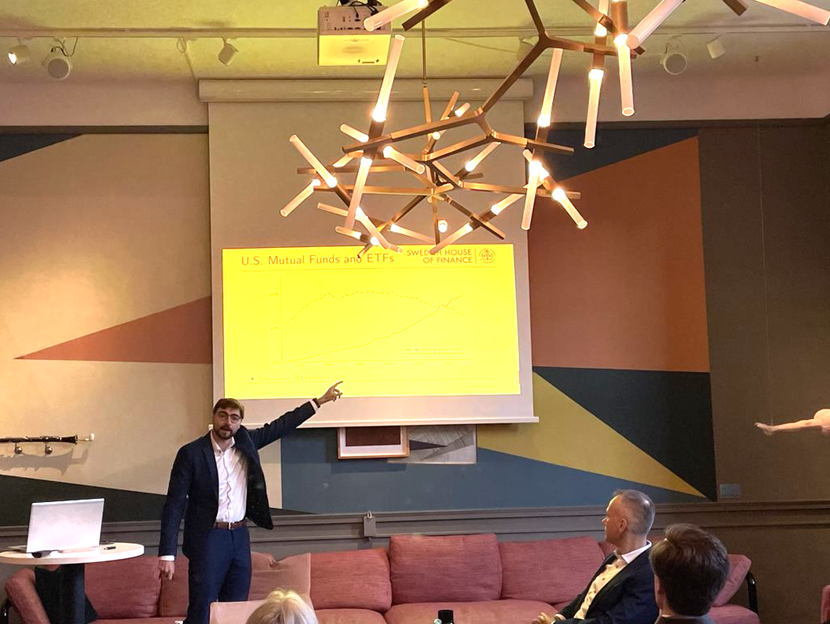"Dumb Money": Is the Rise of Passive Investing Always Good?
okt. 15, 2024
The rise of passive investing has brought lower costs and better diversification for individual investors, but its broader impact on markets raises important concerns, according to insights shared at a recent Fireside Chat hosted by the Swedish House of Finance. Experts discussed the growing shift towards passive strategies and their potential long-term effects on financial markets.

The Fireside Chat with Paul Huebner took place on October 15, moderated by SHoF’s Alexander Ljungqvist and attended exclusively by SHoF partners and invited guests. Here's what they discussed:
Collateral Damage
One major issue highlighted was how passive investing disproportionately benefits large-cap firms, given their dominant presence in major indexes. Passive funds often track indexes like the S&P 100, which are heavily weighted toward large-cap companies, resulting in these firms receiving a larger share of capital inflows. This "overweighting" favors large-cap stocks, even though they are already substantial.
It was noted that it's more difficult to significantly increase positions in large-cap firms compared to smaller-cap stocks, which offer more flexibility. Consequently, large caps benefit more from inflows, while smaller-cap stocks may experience greater price movement during market shocks due to their flexibility.
Concerns were also raised about the widening gap between market valuations and fundamentals. The rise of benchmarking and "closet indexing" within active strategies was suggested as contributing to market inefficiencies. However, as passive investing grows, so too does the incentive for active investors to exploit these inefficiencies, potentially restoring balance to the market.
Corporate Governance Impact
The discussion also explored the potential impact of passive investing on corporate governance. Large passive shareholders tend not to actively monitor executives, which may reduce accountability and weaken board oversight. Some participants discussed the "common ownership hypothesis," where large asset managers holding stakes in competing companies could diminish competition in product markets, raising concerns for consumer welfare.
Less Can Be More in Regulation
Another key theme was the role of regulation in mitigating the risks of passive investing. It was suggested that reducing certain regulatory restrictions could enhance competition and market efficiency. On the other hand, measures like raising capital requirements or easing asset reporting thresholds might limit flexibility and weaken competition. Strengthening disclosure requirements was recommended as a way to improve transparency and address the risks of "closet indexing."
The discussion emphasized that the goal is not to limit passive investing but to improve the informational environment and bolster competition in financial markets.
